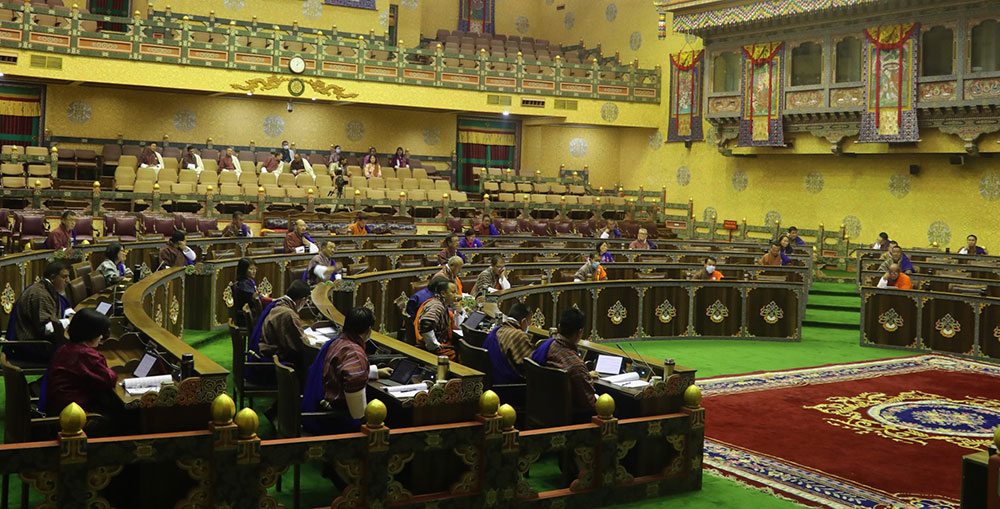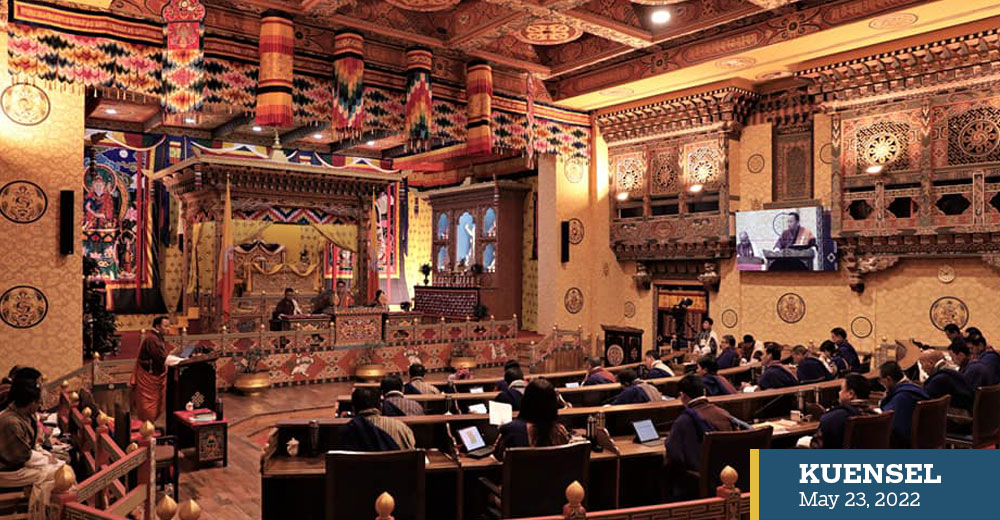Thukten Zangpo
National Council (NC) members supported the Fiscal Incentives (Amendment) Bill 2022 and the Goods and Services Tax (Amendment) Bill 2022 yesterday.
The Bills were forwarded to the NC after their adoption in the National Assembly (NA) on June 19. The NA adopted the Goods and Services Tax (GST) Bill deferring implementation to when the GST system is ready.
Introducing the GST Bill to the house yesterday, Finance Minister Namgay Tshering, said that the software component, Bhutan Integrated Taxation System (BITS) development was not ready.

The National Assembly yesterday continued with the third reading of the Forest and Nature Conservation Bill of Bhutan 2021 for the fifth day
He also said that International Monetary Fund and Singaporean experts said the BITS lacked the auditing and tax compliance system.
Lyonpo also added that it was unfavourable to implement GST when the economy was still recovering from the pandemic.
He added that the GST system was intended to fix tax leakages and double taxation.
Chukha NC member, Sangay Dorji said that the government had spent Nu 220 million (M) to develop BITS of the total budget of Nu 570M and of the total Nu 30M to Armenian developers.
He asked whether the BITS contract awarded to Thimphu TechPark Limited (TTPL) would continue the work and who would be held responsible for the failure to deliver.
Lyonpo said that the contract had been terminated temporarily as the TTPL could not deliver the required BITS solution.
However, he said that the government was thinking about the re-engineering process and asked the TTPL’s opinion, and other international experts to chart the way forward.
He added that the contractual agreement was between the finance ministry and the TTPL, and Armenian developers partnered with TTPL.
The minister also said that they could employ about 40 graduates which contributed to knowledge transfer and capital formation.
On the Fiscal Incentives (Amendment) Bill, the National Assembly endorsed repealing Section 56(1) of the Fiscal Incentives Act of Bhutan 2021 since it was redundant and covered by Section 51 of the Act.
The Royal Monetary Authority (RMA) in a letter to the finance ministry stated that the access to convertible currency was being governed by the Foreign Exchange Rules and Regulations as empowered by the RMA Act 2010 as opposed to the Fiscal Incentives Act of Bhutan.
It means that the manufacturing units have to earn in convertible currencies from the export of their finished products to get full Sales Tax and Customs duty exemption on the import of raw materials from countries other than India.
However, the RMA asked the finance ministry to dismiss the convertible currency earning requirement as a precondition for exemption in March this year.
The Lyonpo also said that the Fiscal Incentives Act 2021 provided concessionary rates and investment allowance to make the economy stronger including reduced tax rate from 30 percent to 10 percent for the small, cottage, and micro-businesses located in border towns.
Bumthang NC member and chairperson of the good governance committee, Nima, said that the money Bills’ effective dates are not in conformity with the Public Finance Act 2012 and asked if the Act could be discussed in this session.
The effective dates of money Bills have been deferred despite Section 46B of the Act prescribing that such Bills shall be applied retroactively from the date it was initially tabled in the National Assembly. Lyonpo said that the Act is under review and almost ready.


